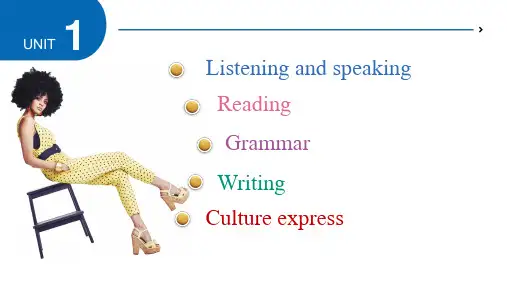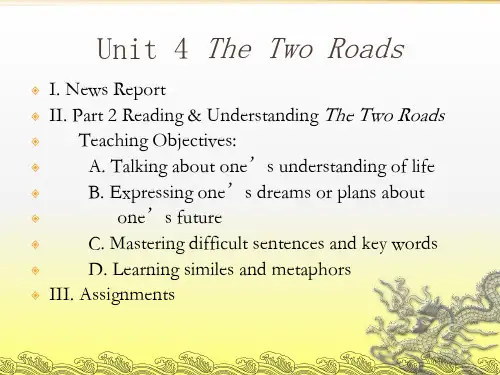根据听力材料中出现的某些提示性词语,如: little或hardly,以及说话人的语气等可以推断出说 话人 对 某一 事 物的 态 度是 积 极的 ( p os i tiv e , happy)、消极的(negative, sad)或是中立的 (neutral, indifferent)。 人们在兴奋、惊讶或激动时说话的语调就高,在 相反的情况下,语调则低。
Pronunciation and listening skills
1M: Your brother likes wearing cool clothes. W: He does. And he cares little about what people think of him. Q: What's the woman's brother's attitude toward other people's opinion of him?
2 M: Those old people can't stand rock music(摇滚乐).
W: Yeah, it's too noisy for them, though young people like us find it very exciting. Q: What's the woman's attitude toward rock music?
Mark: Write a paper every week, participate in research groups, prepare for tests, to name a few(仅举几例). I don't know if I can stand it much longer. Tom:Yeah, campus life might be tiring, but we students need to balance work and rest. Mark: You are right. I guess university life is not as good as I expected. I am tired of the endless homework. It's not what I had in mind. Tom: I feel sorry for you. Try to relax. Actually it's a good thing that teachers are strict with their students. Mark: I know that, but there‘s a difference when it spoils (糟蹋,破坏,掠夺)your enjoyment of study.










